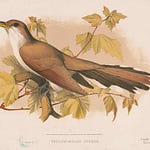“How do you know that you have free will?” asked our high school religion teacher, Father Culnane. “Raise your hands.”
We raised our hands. Were we compelled to do it? No, we weren’t. “Now,” he said, “raise your hand if you want to, and keep it down if you don’t.” And sure enough, some of us did and some of us didn’t. “Was there anything outside of you that forced you?” he asked. “Didn’t you decide within yourselves?” He had told us that he used to go visit his old classmate once a year, the materialist B. F. Skinner, to try to persuade him to give up his empty project of reducing all human life to the pinball-bounces of atoms in empty space. Father Culnane and his friend both accepted the direction that logic must lead: if matter is the only thing that exists, you have no free will — and even the notion that there is a “you” is an illusion; but if free will does exist, then materialism is wrong, and there’s no reason to deny you your personal being.
Father was learned in the arguments of Thomas Aquinas, as I came to see much later. I suppose he knew that with high school students you’d better not be too subtle. But the Latin phrase that Thomas uses is “liberum arbitrium,” free judgment. That is, we’re given a variety of things to choose from, and a variety of ways of securing them. Often it’s not a matter of judging what is good and what is bad, but of judging what is good and what is better, or what is good in a certain way but not in another, or what good thing is in accord with what other good thing, and so on.
Man is always making judgments: that’s what it means to possess reason, the ability to weigh, to balance, to give a little here and withhold a little there. Other creatures act, no doubt, but man takes action: his action, when he is being most human, is always a kind of art. Should you add a dash of cloves to the stew? What if you left the stones for the foundation rough? Would it be wise to leave an opening in the dome of your house, to let in the light?
So in our Poem of the Week, “The Aim Was Song,” Robert Frost contrasts two agents, the wind that blows as it will and where it will, and man the judge, the artist, who teaches the wind to blow in a certain way, to make music. The wind may whoosh through the reeds, but it is man, in his human (and divine) capacity to make free judgments, who is freer than the wind, because he can choose, can direct, can concentrate: can turn the whooshing into a melody. And thus is the moaning of the wind fulfilled in man, who makes music from it; and the wind is satisfied that it should be so.
Before man came to blow it right The wind once blew itself untaught, And did its loudest day and night In any rough place where it caught. Man came to tell it what was wrong: It hadn’t found the place to blow; It blew too hard—the aim was song. And listen—how it ought to go! He took a little in his mouth, And held it long enough for north To be converted into south, And then by measure blew it forth. By measure. It was word and note, The wind the wind had meant to be— A little through the lips and throat. The aim was song—the wind could see.
Word & Song is an online magazine devoted to reclaiming the good, the beautiful, and the true. We publish six essays each week, on words, classic hymn, poems, films, and popular songs, as well a weekly podcast, alternately Poetry Aloud or Anthony Esolen Speaks. To support this project, please join us as a free or paid subscriber.















Share this post